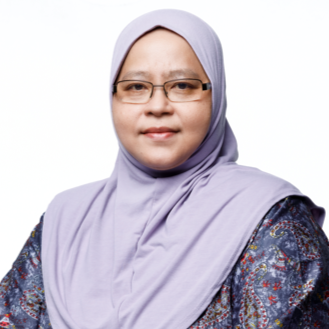By: Dr. Ainol Haniza Kherul Anuwar, Prof. Dr. Nor Adinar Baharuddin
Did you know that in recent years, Malaysia, especially Peninsular Malaysia, has been experiencing unprecedented heat? It’s not just your imagination. Almost record-setting heatwaves have struck the northern region, with the El Niño weather phenomenon exacerbating the hot and dry conditions in Perlis, Kedah, and Penang. According to a recently published local study, since the year 2000, heatwaves have become both more frequent and more intense. The numbers are quite striking: every decade, the area affected by heatwaves expands by nearly 9 km², and these scorching periods last about 1.5 days longer each time.


One surprising effect of this climate shift is its impact on oral health. The intense heat leads to dehydration, which in turn reduces saliva production. This might not seem like a big deal at first glance, but saliva is crucial for maintaining oral health. Without it, we’re at a greater risk of dental issues. Saliva is a secret hero for our mouth, cleaning away food bits and stopping acids. It also gives teeth a protective coating of calcium, phosphate, and fluoride, shielding them from bacteria. But when we are dehydrated, we make less saliva which means less protection. This puts us at a higher risk for tooth decay, gum problems and dry mouth. A recent study in Korea published in 2021 showed that dehydration has been linked to periodontal disease, permanent caries, and other oral health issues. Maintaining adequate hydration is crucial for overall oral health and can help prevent conditions that arise from dehydration. So, those long, hot days can actually lead to more trips to the dentist!
The conversation about weather and dental health might seem unusual, but it’s all interconnected with a larger issue: climate change. It’s not just about polar bears and ice caps; it’s about how changes in our environment are directly affecting our everyday lives right here in Malaysia. Hence, regular dental check-ups are more important than ever. These visits aren’t only for when there’s a problem; they are essential for preventing heat-related oral health issues.
Beyond personal habits, we can also transform our living spaces to be more heat resilient. Planting trees and creating shaded areas in our neighbourhoods can significantly lower temperatures. This not only makes our immediate environment more pleasant but also contributes to broader efforts against climate change. It’s about creating spaces that not only provide relief from the heat but also enhance the overall quality of life for our communities.
Moving beyond personal habits, there’s a critical dimension to this issue. Increased heatwaves can strain our healthcare system, leading to higher medical expenses for individuals and the government. Extreme temperatures can also impact worker productivity, especially in outdoor and non-air-conditioned environments, potentially affecting Malaysia’s economic growth. Addressing these challenges involves not just immediate responses but also long-term planning and investment in climate-resilient infrastructure and health systems. This approach is not just an environmental imperative; it’s a smart economic strategy to safeguard our future.
Malaysia is getting hotter, and it’s affecting us in ways we might not have thought about. But by staying informed, making smart choices, and looking out for each other, we can beat the heat. So, let’s all be more conscious of our environmental impact. Simple actions like reducing waste, conserving energy, and using public transportation can collectively make a big difference in mitigating climate change.
In facing Malaysia’s heatwave challenge, it’s clear that every small action counts. Together, through awareness, lifestyle changes, and community efforts, we can create a cooler, healthier Malaysia. Remember, combating heat is not just about finding relief from the sun; it’s about safeguarding our health and our future. Let’s stay cool, stay hydrated, and stay committed to making a difference for our, oral and overall, health!
……
The authors are from the Faculty of Dentistry, Universiti Malaya, and may be reached at ainolhaniza@um.edu.my








Leave a comment